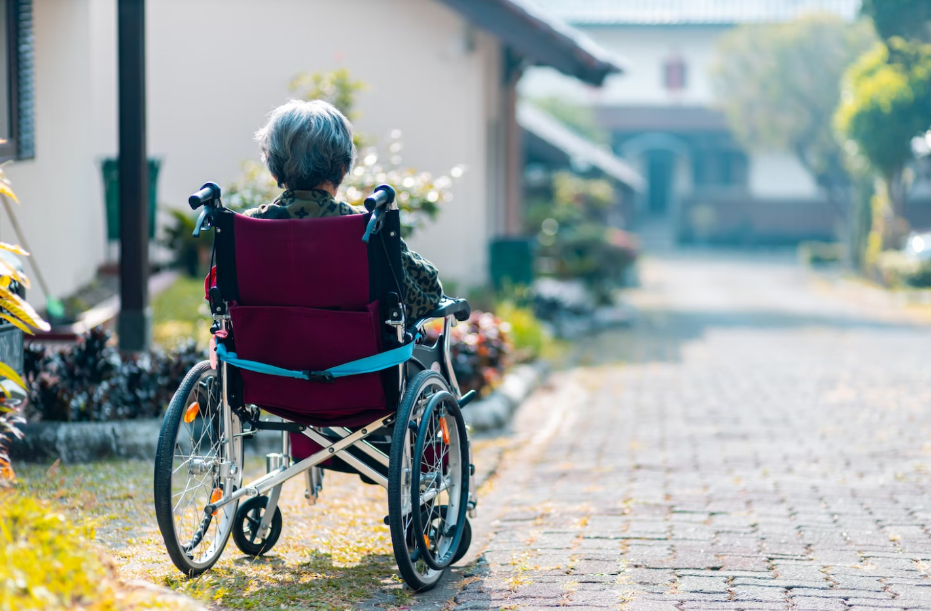Dementia and Alzheimer’s Care in Los Angeles – What You Should Know
Symptoms
Failing memory can be a normal part of growing older, but if someone you know starts showing signs of dementia – like difficulty speaking, getting lost going to familiar places, having difficulty following instructions or becoming more irritable and suspicious than normal – they should see their doctor immediately. Also call if they experience difficulty sleeping, vision problems (dimming, blurring, double vision or loss of one eye), dizziness or balance issues as these could all indicate serious medical problems like strokes or infections to the brain.
According to this site, middle stage symptoms are more pronounced. Individuals might have difficulty taking their medications or keeping up with housework, forgetting how to dress or bathe themselves, sleeping poorly and losing control over bodily functions such as urinating or defecating. Furthermore, mood and behavior changes such as becoming suspicious and agitated or experiencing hallucinations or distortion of vision could occur as part of this stage.
At the late stages of Alzheimer’s, individuals will require extensive care in order to stay safe and comfortable. They’ll require assistance eating, sitting up, walking and using the bathroom; communication difficulties might lead to difficulty using it themselves and they might have trouble recognizing loved ones; they could become upset, angry or anxious; seizures might occur as well as increased vulnerability for infections like pneumonia.
Diagnosis
Early signs of Alzheimer’s disease or dementia include forgetting recent events, having difficulty with familiar tasks, misplacing items and experiencing a general loss of interest in daily activities. As the disease advances (www.nia.nih.gov/health/end-life-care-people-dementia) you’ll begin observing more extensive memory loss along with difficulty with concentration and planning as well as mood or behavior changes as well as difficulty communicating.
As your loved one becomes lost in familiar places they lose the ability to drive. Over time they stop recognizing family and friends, have trouble eating and drinking as their physical health declines significantly, lose control over movement as they experience physical decline in physical health, struggles to speak out loud when communicating or walking along with physical limitations associated with speech and walking resulting in difficulty communicating and eventually abandonment altogether.
Treatment
Family and friends can provide vital assistance for someone suffering from dementia by helping with daily activities, finding new forms of communication and finding ways to adapt to symptoms such as memory loss, confusion and irritability. They may also provide emotional and social support.
Later in the disease process a person may require intensive medical care as well as help in accomplishing everyday tasks at home – often wandering off, becoming lost in familiar settings and not recognizing friends or relatives, needing help bathing/grooming/dressing/eating assistance as well as experiencing deteriorations in thinking/speaking/movement abilities – something family/friends may provide as they care.
Treatment options in the later stages of dementia typically focus on providing comfort and addressing other health concerns, including sleep problems, urinary tract infections, pain management and depression. Help at a memory enhancement center is always an option. Antipsychotic drugs may also be prescribed to address paranoia, hallucinations or agitation but their use should only be undertaken temporarily – generally after other more suitable medications have been tried first – so as not to cause dizziness or falls.

Caregiving
Millions of people in the US care for a friend or family member living with dementia or Alzheimer’s. Caregivers often find themselves overwhelmed by caregiving duties and at risk for depression, high levels of stress or burnout. Alongside seeking regular assistance from family and friends, caretakers should find additional resources available such as community and online support groups that may assist their efforts.
Being informed about your loved one’s condition and expectations is an integral component of providing effective caregiving. Knowledge can reduce frustration, set reasonable expectations and give strategies for dealing with daily challenges as they arise. Furthermore, understanding their behavior better may foster a more positive attitude toward caregiving.
As your loved one’s cognitive and physical abilities wane, it’s essential that they maintain some form of structure and comfort throughout the day. Establish a daily schedule and routine, such as morning and evening rituals.
Make sure that you and your loved one receive adequate rest and respite care, in-home health care and adult day care programs – often free through local, state or federal programs – on an ongoing basis. Services may be offered both privately owned homes and community facilities for maximum convenience.
FOLLOW US ON FACEBOOK
RECENT POSTS
TAGS
About The Memory Hole
You've reached TheMemoryHole.org! A diverse lifestyle blog with content on a variety of different topics to help you define and live the life you want to live! Thanks for stopping by!
Copyright © The Memory Hole. All rights reserved.









